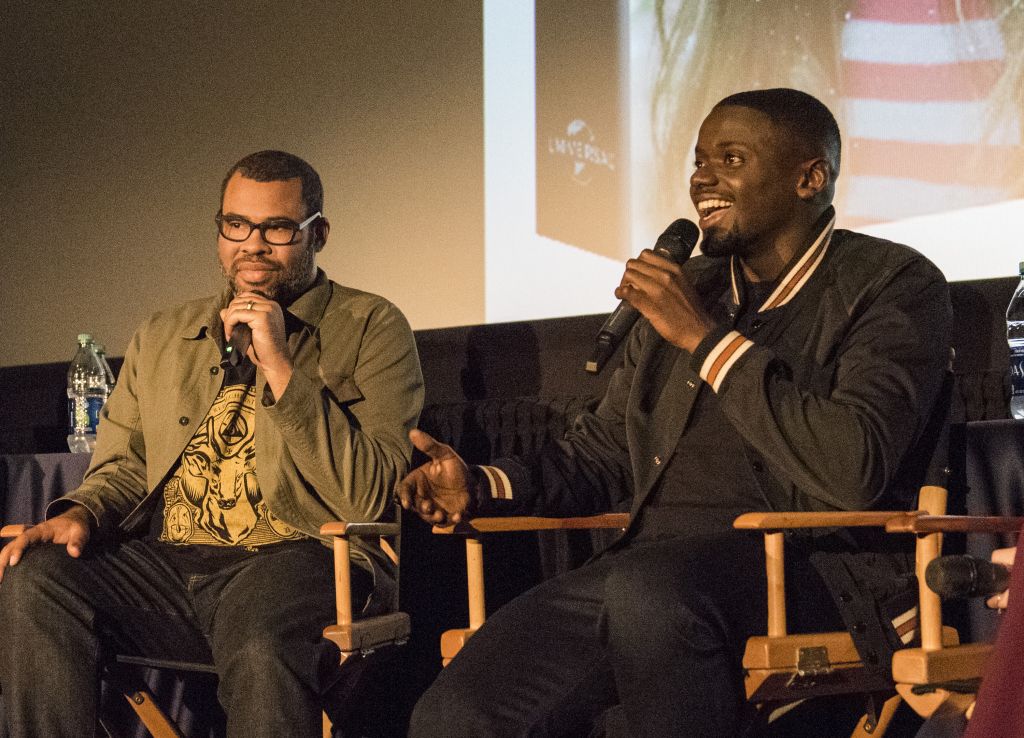
Source: Rodin Eckenroth / Getty
Actor/writer/director Jordan Peele fielded many questions about his “social thriller” smash Get Out while promoting the film’s release. Reporters asked about the story’s nuanced levels of racism, the different horror references, and, most pressingly, if society was ready for a movie that twists and pulls at white America’s love/hate relationship with Black culture. “That’s the power of story and genre,” Peele stated in an interview with the New York Times. “You can ask a white person to see the world through the eyes of a Black person for an hour and a half.”
It was one thing to hear Peele mention the ending in passing, but to see it is something completely different.
At the end of the movie (*SPOILER ALERT*), actor Daniel Kaluuya’s character, Chris, defeats the members of the Armitage clan one by one, and is about to kill his once-girlfriend Rose. Just then, he sees the familiar flash of blue-and-red lights, but is quickly relieved to discover his best friend (and now savior), Rod is driving the cop car. After seeing so many Black people die at the hands of officers in real life—not to mention POC’s horrible track record in horror films—it felt good to see the Black man come out alive.
But ever-cautious of the climate in which he was creating the film, Peele hinted at making an alternate, and sadly, more realistic ending to Get Out that would express what probably would’ve happened if the story occurred in 2017’s America. Chris, standing with hands clasped around Rose’s neck, actually kills her via asphyxiation, just as the blue-and-red lights of local law enforcement pull up to the gory scene. A Black man, crouched over a now dead white woman, with bodies all around him and a burning mansion in the background, becomes the next victim of preliminary judge and jury by the two cops. While Peele doesn’t kill Chris off in this scene, he’s seen aggressively being taken into custody, and in the next scene, Rod visits a jailed, downtrodden Chris dressed in county orange. While Rod optimistically presses Chris for any information he could remember that could lead to his freedom, Chris states he’s come to terms with his fate and there’s no use in pressing the issue further. “I’m good… I stopped them,” Chris says. “I stopped them,” he repeats before hanging up the phone and being led back into the jail.
It was one thing to hear Peele mention the ending in passing, but to see it is something completely different. We’re glad Peele went with the better ending for the film’s theatrical release, that he went against the grain and changed the narrative for once.
















